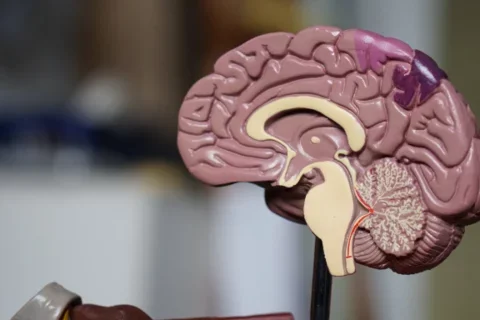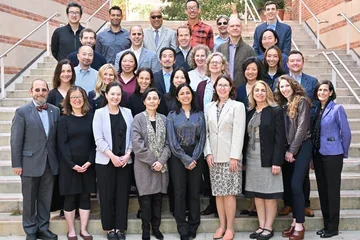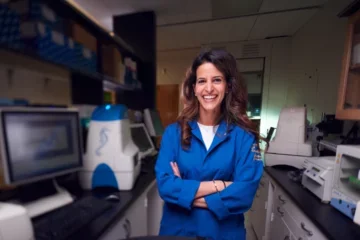Neurologist vs Neurosurgeon - What Is the Difference?
A Brain Surgeon's Perspective

A Day in the Life of Dr. Marvin Bergsneider, Neurosurgeon and Co-vice Chair of Clinical Affairs for the Department of Neurosurgery
Neurologist vs Neurosurgeon — both treat patients with disorders or injuries related to the nervous system, but what is the difference, and where do the two overlap?
When a patient has neurological symptoms, often their initial evaluation is with a neurologist, who might obtain imaging to get to the source of the problem. If they discover a structural problem, such as a tumor, they'll refer the patient to a neurosurgeon.
(What Does a Neurologist Do? Click to the link to learn more...)
Enter Marvin Bergsneider, MD

The saying, "It's not brain surgery," doesn't apply to Marvin Bergsneider, MD, who serves as a professor and co-vice chair of clinical affairs for the Department of Neurosurgery in the David Geffen School of Medicine at UCLA. As a neurosurgeon at the Ronald Reagan UCLA Medical Center, Dr. Bergsneider operates on the brain three days a week, specializing in minimally invasive and advanced endoscopic techniques for the treatment of pituitary tumors and brain tumors.
"I love being in the operating room," says Dr. Bergsneider. "The primary reason surgeons become surgeons is because they like to operate, and that's where we are the happiest. It is a very fulfilling profession in that you can really see the fruits of your labor in the recovery room."
Dr. Bergsneider removes more than 100 pituitary tumors a year, some of which can cause loss of sight. And it still amazes him that the patient's vision can be back to normal just an hour after surgery.
What Sets Him Apart
The difference between a neurologist vs neurosurgeon is fairly basic. They both treat the same organ, but neurosurgeons operate and neurologists don't. For patients afflicted with a brain disorder, these specialist roles are in fact complementary when seeking treatment.
With brain tumors, for example, neurosurgeons and neurologists all work as one team, both evaluating the patient but each treating different aspects of his or her medical needs. "After removal of the brain tumor," explains Dr. Bergsneider, "the neurology team might then administer chemotherapy and coordinate long-term aspects of care."
Recently, Dr. Bergsneider has observed a blurring of that distinction with regard to the treatment of stroke and brain aneurysms. A few specially trained neurologists now do invasive procedures for these disorders, using catheters navigated though the blood vessels — an approach to care that is also done by neurosurgeons and radiologists.



